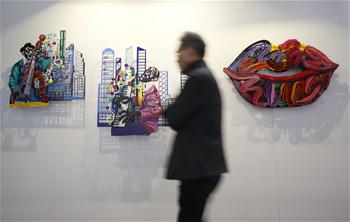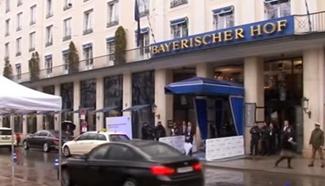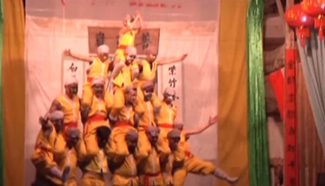BEIJING, Feb. 18 (Xinhua) -- China's securities watchdog has said it will attach greater importance to supervision in the capital market to guard against risks and protect the rights of investors.
Liu Shiyu, chairman of the China Securities Regulatory Commission (CSRC), said the CSRC would be strict in market supervision in 2017 in order to maintain market stability.
The CSRC is working with the Ministry of Public Security, the Supreme People's Court and the Supreme People's Procuratorate in cracking down on market fraudsters, and drafting judicial interpretations of supervision policies.
The CSRC issued a total of 218 penalty notices in 2016, up 21 percent year on year, and confiscated 4.28 billion yuan (about 626 million U.S. dollars), nearly triple the amount the previous year.
The Chinese securities watchdog has also strengthened its cooperation with overseas counterparts, dealing with 178 international cases in 2016.
"To prevent market risks, the regulator will keep a close eye on financial conditions both at home and abroad and be prepared," CSRC assistant chairman Xuan Changneng said in January.
Xuan said that progress was made in capital market regulation last year thanks to action against wrongdoing and a vibrant market.
"The stock market in 2016 was much steadier compared with a year earlier. Only seven trading days registered changes beyond two percent from March to December last year, and the benchmark Shanghai Composite Index gained 15 percent in the period," he said. "The two stock exchanges both saw fluctuations of less than 10 percent in the second, third and fourth quarters."
IPOs and refinancing by cash raised 1.33 trillion yuan last year, up 59 percent. IPOs hit a five-year high, according to Xuan.
"The bond market also flourished, with non-financing enterprises issuing 2.87 trillion yuan of bonds last year, up 170 percent," he said.
"While financial risks were generally controllable, challenges remain," said Lai Xiaomin, president of China Huarong Asset Management, a major state-owned asset management company.
Lai highlighted the buildup of non-performing loans, a slower economy, shortage of liquidity and squeezed profit space as major risks.
He called for better corporate governance structure to hold directors and supervisors responsible, while stepping up regulation and granting greater authority to regulators.
In July last year, the CSRC announced its decision to delist a company from China's stock market following fraud during its IPO, the first time authorities have taken such action.
"It is said to be the most severe penalty yet for IPO fraud in China. The company will be barred from relisting," said CSRC spokesperson Zhang Xiaojun, declaring "zero tolerance" for IPO fraud.
Previously, delistings were mostly for failure to meet profitability requirements. The tougher regime is in answer to persistent calls for an effective delisting mechanism.
Under the current scheme, IPOs are limited in number and require approval from market authorities. While it is difficult for companies to go public, it is not much easier to delist them due to opposition from shareholders and local governments.
Though some companies performed poorly or were caught fabricating financial data, many of them clung on to their status through mergers and acquisitions or by becoming shells for other companies unwilling to go through the tortuous IPO pipeline.
By the time regulators changed the delisting rules in July 2014, only 78 companies had been delisted from the two bourses since 1993, when delisting was formally introduced.
It is said that, so far, nearly 70 companies revoked their IPO applications unasked, daunted by the regulator's strict IPO supervision.












